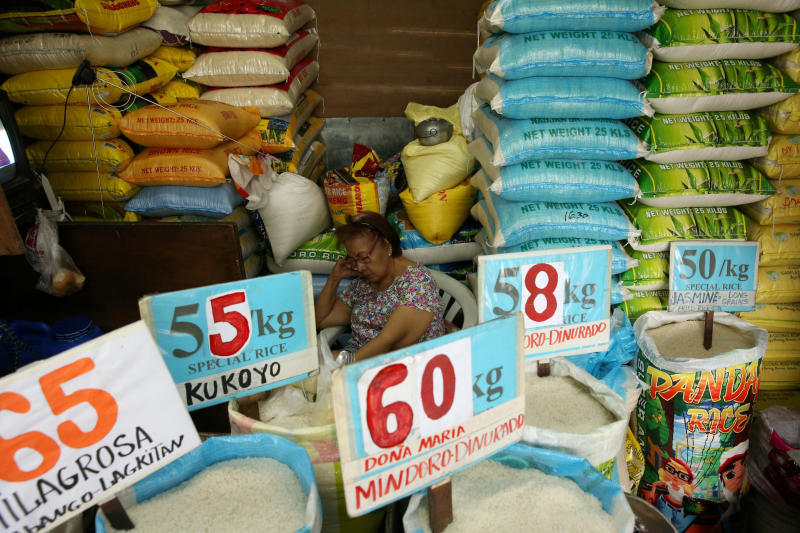
MANILA: The Philippine government will nearly treble rice purchases from local farmers this year, officials said on Monday, after it rejected a proposal last week to impose safeguard duty.
The National Food Authority (NFA) said it will now buy up to 1.14 million tonnes of unmilled rice from local farmers, who were hurt by the removal of quantitative import restrictions, compared with the previous target of 389,000 tonnes.
The state-run agency's purchases this year have already exceeded half of the new target, spokeswoman Rebecca Olarte said.
NFA also said it has been authorised by its council to buy the staple grain at 19 pesos (11 baht) per kilogram, from 17 pesos previously, and sell them to retailers at 23 pesos per kg, reduced from 25 pesos.
The announcement comes after Economic Planning Secretary Ernesto Pernia said on Friday that the "foolhardy idea" of imposing safeguard duty on rice imports, which could push up inflation, has been dropped.
Agriculture Secretary William Dar had pushed for the safeguard duty to be imposed on top of existing tariffs, as proposed by some farmers' groups, to ease the pain of local producers hit by a surge in rice imports.
The Southeast Asian nation, which is one of the world's biggest rice importers and often buys grains from its neighbours Vietnam and Thailand, lifted a two-decade-old cap on purchases early this year and replaced it with tariffs.
The policy shift has led to unhampered rice importation by the private sector, with this year's purchases seen reaching a record annual volume of more than 3 million tonnes, way beyond what the country needs to fill the supply gap.
While that helped bring down retail prices and ease inflation to the lowest in nearly three years in September, from its peak in almost a decade last year, farmers suffered as farmgate prices plunged.
The fall in farmgate prices is not a nationwide concern, however, according to Finance Secretary Carlos Dominguez, saying those in central and southern Philippines in particular "seem to be holding up".